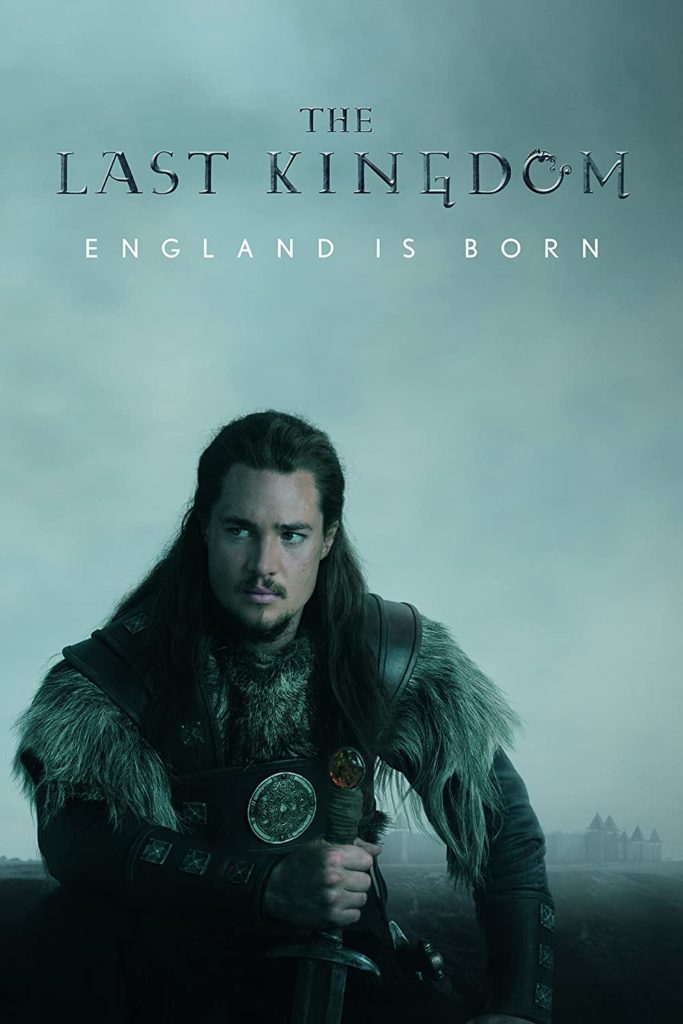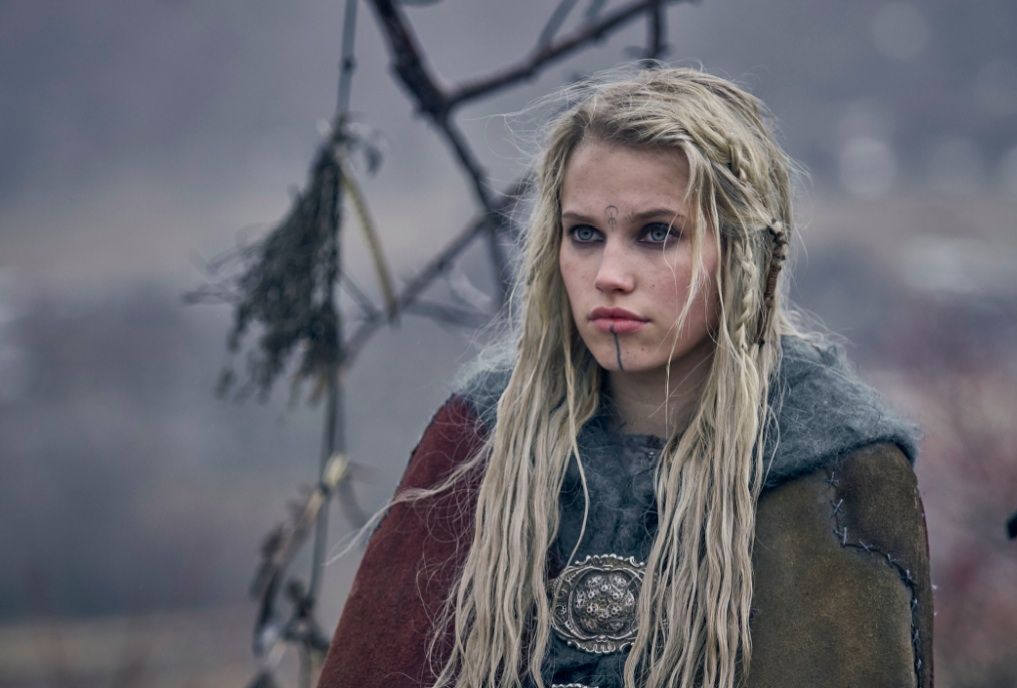“The Last Kingdom”–“Game of Thrones” meets “Vikings”

Based on The Saxon Stories novels by Bernard Cornwell, The Last Kingdom first premiered on BBC Two from 2015 to 2017, and on Netflix in 2018. Four seasons (with a fifth in production) cover four of the twelve Cornwell books in the series, loosely based upon the history of tribal and internecine warfare between various factions of Saxons and Danes (=Vikings).
In the year 866 we see the protagonist–a Saxon aristocratic boy named Osbert –taken after his father and older brother are slain by Danes. Only his ruthless uncle survives and robs him of his birthright. Renamed Uhtred and, along with a little Saxon girl, Brida, the two children are taken as slaves and raised by the powerful but loving Earl Ragnar in Danish Northumbria. Time passes and The Last Kingdom follows the now determined warrior Uhtred (newcomer Alexander Dreymon) to reclaim Bebbanburg and seek revenge on his uncle.
The central historical story — the birth of England–focuses on King Alfred of Wessex dreaming of a unification of the Saxon kingdoms of Northumbria, East Anglia, Mercia and Wessex. Invasions by the Danish prevent nationhood. And competing greed and power struggles from among the Saxon tribes don’t help with nation building either.
The separate kingdoms of Northumbria, Mercia and East Anglia have all fallen to the Danes, leaving the great kingdom of Wessex standing alone and defiant under the command of King Alfred. In the midst of this turbulent backdrop lives Uhtred. Born as a Saxon and raised as a Dane, The Last Kingdom explores the conflicting and confusing dual identity with which Uhtred continually has to struggle. His loyalties are tested, as he weighs injustice and jealousies thrown his way. Is he Saxon or Dane? Is he Christian (=Catholic) or “pagan” (=Viking)?

Unlike Game of Thrones we see kings who are poor and struggling to satisfy their families, their armies, and their ambitions. No one is wealthy, and all are coveting other kingdoms for greater glory and gold.
Season 1 covers the years 866–878, season 2 from 878 to 886, season 3 from 893 to 900, and season 4 takes place from 901 to 912. And with each season new villains and allies are introduced, resulting in an inability to summarize all the plots, intrigue, and betrayals here. Overlaid on the narrative of epic battles is the religious fervor of the Saxons to destroy the “heathens”, not only for their territory but for their souls.
The pacing is extraordinary, perhaps due to a crisp story line in Cornwell’s books. Every episode is beautifully structured. The cliffhanging ending in each episode makes the viewer want to watch the next episode immediately. The Last Kingdom is designed for binge-viewing just as a good plot-driven novel tempts the reader to turn the next page.
In the final analysis, The Last Kingdom may be a more enticing drama than Game of Thrones, since the backstory of each character reveals more of his or her motives and intentions. The villain-hero crises and the unexpected results are as thrilling as Game of Thrones without the magic, the dragons, and other fantasy elements.
Availability: Netflix streaming
Note: The final season, season 5, is in production with a movie planned to dramatize the remaining Saxon Stories.

lenore gay
Maybe I’ll check this out. I did enjoy Game of Thrones, mostly by reading, later TV. Thanks.